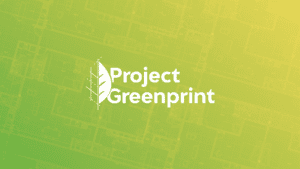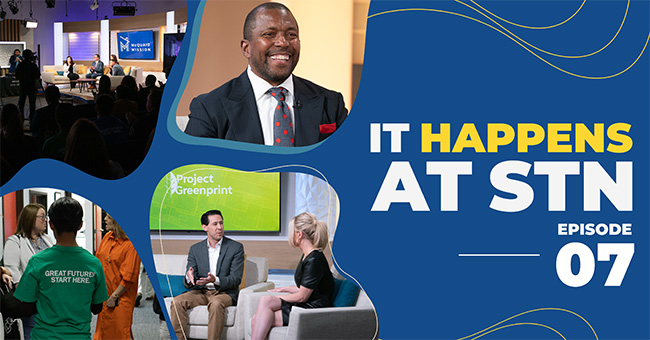Following the departure of former United Food Bank president Dave Richins, newly minted CEO Jason Reed joined Project Greenprint host Kristen Keogh for a one-on-one conversation during the April episode of It Happens at STN.
Reed took the audience through his background and explained the lessons he learned serving in similar positions in other metro areas. Reed also shared his message for community leaders who want to help the United Food Bank in their effort to address systemic hunger in the greater Phoenix area.
Meet the new CEO of United Food Bank
As he takes over leadership of United Food Bank, Jason Reed sits down to talk about his first priorities and what he needs from the community
The following questions and answers appeared as part of Project Greenprint taped on April 6, 2023. It has been edited for length, clarity and context.
—
Kristen Keogh:
There has to be a lot you want to get to, but where are you starting? What’s first on your list of action items?
Jason Reed:
So I’m actually following upon [the] great leadership of Dave Richins who was president of the United Food Bank for the last five years. [He] led us through the pandemic, and I’m thankful to be able to build upon the foundation he’s built.
The action that I’m taking next is how we break the cycle of hunger for our communities. Hunger can happen to anyone. Whether you lose a job, then you have difficulty affording groceries. Or, things happen to you. You get into a car accident. You have a large ER bill. These things can happen to anybody.
Breaking the cycle means, how do we help you get to food stability [and] give you enough to meet your near-term food needs, while also taking the next step? How do you strengthen families, strengthen seniors, so that you can actually be able to meet the food needs of tomorrow as well?
KK:
Let’s talk a little bit more about your history and how you want to take what you know and use it here in Arizona at the United Food Bank. I know that you recently were with St. Vincent DePaul. You worked in Minnesota and on the East Coast. Is there anything you saw working well in those places that you think could be effective if implemented here in the Valley?
JR:
Yeah, I grew up in Minnesota originally. We talked about George Floyd a little bit earlier in the program. I was actually a long-time part of an organization called Urban Ventures in South Minneapolis. They’re on Lake Street where many of the riots actually happened.
I was on the board there and [had] the opportunity to talk to many people in the neighborhood, many families, many children, and I think one of the things that struck me about those conversations was when you talk to them, for many, having opportunity in life was a luxury or having possibilities in life was a luxury.
So Urban Ventures went to work on that, family by family, child by child, neighborhood by neighborhood, to do family empowerment, education, [and] economic security. That kind of model built trust. It builds credibility. It built the possibility in people that it was possible [to] reach the achievement and dreams that they wanted to achieve.
KK:
You have a room full of leaders and change-makers. What do you want them to know about what we need to change in hunger and food accessibility in our community?
JR:
Our mission is to unite communities to alleviate hunger. We confront the largeness of that task, every day and we’re thankful we don’t have to do that alone.
But we need support. We need great people to come and work for us. We need great partners to lend their talents [and] their intellectual philanthropy to us as well. Then, we need financial support to be able to power our strategies and our designs for the future.




